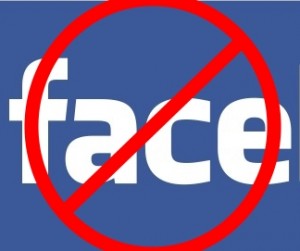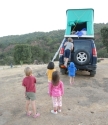 So, for a full month, I was off Facebook.
So, for a full month, I was off Facebook.
Over the last decade or so, Facebook has managed to become an integral part of our society. Facebook pages are nearly as important as, if not more important than a company’s website. A Facebook account has become the single account used to access many other websites, rather than a site-specific account and password. It is our address book and is trying hard to replace e-mail as our primary means of electronic communication and interaction.
So the notion of not using the site for nearly a month seems ludicrous, even for someone like me who, while not in danger of being called addicted, did use the site fairly heavily. So how did that go?
There were a few times where I missed being able to share things with friends and family — like the time when the woman in line ahead of me insisted on paying for my coffee because I’m such a gorgeous hunk of a man (or because I held the door open for her, maybe) or when I came up with a hilarious joke (Why did the cow tell the bull to go away? Because she wasn’t in the moooood) or amusing interactions with the kids (Jared, hearing the forecast on the radio: “What’s sunshine?”; Me: “It’s when your male offspring holds a flashlight.”) But overall, I didn’t miss it much.
What I did come to realize, however was the significance that Facebook plays in our society today. Some businesses have nearly done away with the notion of a corporate website, focusing instead on “social media” — their Facebook page. For many others, meanwhile, a Facebook account has replaced the notion of a site-specific user account; you log in to the site using your Facebook credentials. It is becoming more popular for event planning and group organization — some local parents are working on starting a support group for kids with celiac disease and Facebook is a strong contender for the platform used for planning. It turns out that I have a number of friends whose only contact information I have is their Facebook account (or perhaps that and a phone number, but nobody actually talks on the phone any more.)
And then there’s the matter of the news. It seems that I, and a lot of other people, get much of their information on current events via Facebook and other social media outlets. This makes sense, in part, because you are likely to see news stories that are relevant to your interests or your specific situation, rather than a collection of stories some news director thinks (guesses) you’ll find interesting. The problem with that, however, is that it is likely to be rather one-sided and biased — much like watching only Fox “news”. The people you’re friends with probably share your views and interests, so what they post or link to will match your existing views and interests — you’ll not get the exposure to other ideas that an independent source would provide you. And, of course, what you see on Facebook is, in large part, controlled by Facebook, including links to news stories.
As a parent, I began to wonder what sort of world we were building for our children — or more accurately, what sort of world was being built for them. Would Facebook become the real-world incarnation of The Matrix? Are we selling our digital souls for the price of a few likes — which can then be used against us to control what we buy, what we like, and what we do?
Does Facebook really bring people together or does it splinter them into discrete groups according to political, religious, and philosophical beliefs? I know I’ve had a number of people “unfriend” me due to differing views — including close family members. Does Facebook pigeon-hole us so as to better control us? Does it really let us see how much alike we all are despite our differences or does it feed on xenophobia, keeping us separate and thus easier to keep in line?
In the end, I’m not sure what the answers are. I’m hoping that there are folks out there who are much smarter than I who are looking into this and that the rest of us will pay attention when they share their findings — undoubtedly on Facebook.
As for my kids, however, I’m going to keep them off of Facebook as long as possible so that they can make real friends instead of “friends” and so that they can hopefully avoid falling under the control of one giant corporation.
Tags: computers, facebook, internet, social media, unplugging

